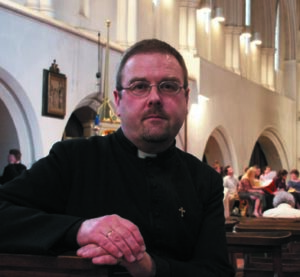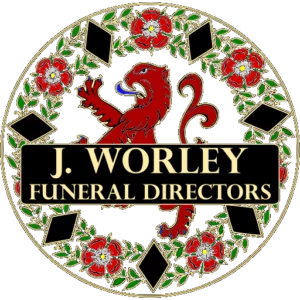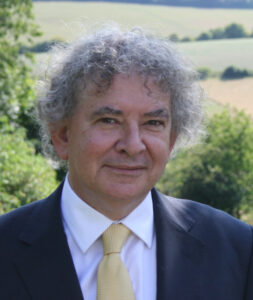Many people find their faith to be a source of comfort and support during a time of loss. We are aware that within the communities we serve there are many different groups of faiths and beliefs, and it is for this reason that we do everything we can to accommodate the needs of people in those groups. We will always do our best to advise on the legality and practicality of any particular rite associated with a religious funeral. The local authorities are also fully aware of the needs of the different religious groups locally, and will co-operate in any way they can to facilitate the necessary rites.
We work closely with religious leaders in the community to build links and ties of mutual understanding. For that reason, when it comes to your time of need you can feel safe in the knowledge that we will work with you and your church to make the experience as easy as it can be.
Equally we are aware that there are an increasing number of people who choose to live their everyday lives without religion. Whether they be atheists, agnostics or simply identify themselves as "non-religious", we know they have the same need for dignity and respect as anybody else.
As a company we have offered non-religious funerals for many years. We were the first funeral directors in the area to offer the choice of a Humanist funeral and we have worked with representatives of the various Humanist, civil and other organisations and groups to ensure that the services we provide are sensitive to the needs of those who do not wish for religious involvement in their funeral. There are a number of humanist officiants in the area and only those whom we know and trust are called upon.
When you are discussing your arrangements with us, please advise our consultant of your requirements in this respect. Remember, we are not going to be judging or condemning anybody for a particular belief, we simply need to know to ensure that your needs are met.
Below are three articles, written specifically for this for us by a Roman Catholic Priest, a local Humanist officiant, and a Civil Celebrant, which explain about each type of funeral. We hope that this extra information will help you to make your choice.
The Christian Funeral - Fr. Tim Bugby SSC

Fr Tim Bugby, Roman Catholic Priest
Ritual and symbolism lie deep at the heart of the funeral rites of the Christian Church. Although many people today do not give regular visible expression to their beliefs, at the time of the death of a loved one, we do feel the need to pray.
The overriding feelings we have when someone we know and love dies is that we now want to do the best for them. It is the last thing we can do for them and by the rituals associated with the funeral, we want them to find peace and serenity. Most importantly, we want our final farewell to be one of dignity and a way of saying thank you for what the person has meant to us.
A funeral, it has to be said then, is not only for the person who has died, but to give expression and meaning to our own sense of loss and grief. Sometimes we can be surprised and overwhelmed by how emotional we can feel: it feels irrational and out of character. Not coming into personal contact with death very often means we might not know what to feel and how to express those feelings. We must come to terms with the fact that we shall not see the person again in the way we have known them here on earth.
The Christian funeral service, whether carried out at a church, in the crematorium or by a graveside, gives a shape, in a sense, to our innermost feelings. Its purpose is to set out in words and actions things that we may not feel strong enough to express for ourselves. The minister or priest can speak objectively of the person who has died. He or she can offer comfort and hope through the words of Scripture, and can pray for the soul of the departed loved one as well as for those gathered for the funeral rites.
All this at a time when our own thoughts are in great turmoil: we are in shock, we are sad, we are angry, we are numb, we are feeling alone and the future does not look bright. Words alone may not be enough: but the Christian symbolism of death and resurrection life offered through the Cross of Jesus Christ is a powerful sign that all hope is not lost. The rituals we go through can help us move on from distress and despair to some semblance of hope. God, we can learn, continues to look after us and to care for us. Importantly, the priest can give expression to the Christian hope that we are all given the opportunity of a treasured place in the Kingdom of God. Death then, becomes not the end of our existence, but the opening of a way to new beginnings: more glorious than we could wish for or imagine.
A funeral service is not an easy day to look forward to. But the overriding feeling afterwards is one of relief that we have done the best for our loved one. It doesn't take away our sadness at parting: but it gives us the hope of one day being reunited with them. Talking through your wishes for the funeral service, as well as your own hopes and fears, is all important so that the minister or priest can personalise the service for you, your family and your departed loved one.
The Humanist Funeral - Simon Allen
Nowadays it is accepted that, if the person who has died did not have religion as part of their lives, then the appropriate funeral is a non-religious one. This will focus on the life and times of the person and be an occasion to celebrate the life that has ended and the memories which will endure. This type of funeral is often called a Humanist funeral.
A humanist Officiant is used to assisting families across a wide range of circumstances, from the expected death at the end of a full life, to the most tragic of events. They will visit the family home, or other location, to discuss the ceremony in detail and to hear about the person's life.
The visit will usually take a couple of hours as the Officiant needs to build up a good picture of the life and character of the person who has died. There will also be discussion of family/friends who may wish to speak on the day and the music chosen by the family. After the family visit, the Officiant prepares the words of the entire ceremony. There is no standard ceremony, each is unique because it is about a unique human being.
Worley's will liaise with the Officiant and settle their fee as a disbursement on your behalf. As these ceremonies are centred around words, the Officiant will always make a printed copy of the ceremony available to the family, after the funeral. This allows for later reflection on what has been said, as it is a lot to take in on the day.
Some members of the wider family circle may be unsure about a funeral without religion. It can be explained to them, that the first consideration is a funeral which is right for the person who has died. Further, they need not be concerned that things would be said which affront their beliefs. Indeed, it often happens that the very people who were dubious before the event are actually moved and impressed to find it so meaningful and dignified.
On the day the Officiant will be at the funeral venue, in advance of the cortège, in suitably dignified attire, to lead the ceremony.
Non-religious funerals are flexible in format as each family requires but what usually serves best is along these lines:
The mourners enter to music chosen by the family, and the coffin is borne in and placed on the plinth at the front. The Officiant will welcome the mourners and explain briefly what form the ceremony will take.
The Tribute follows. This is the main part of the ceremony, an extended appreciation of the life, personality and achievements of the person who has died, what memories they leave, some anecdotes and humour given with affection. Any relative, friend or colleague who wishes to speak, will do so into this section. It is usual then to make a pause for Quiet Reflection, often with music. This is in part an opportunity for those with religious beliefs to pay their own silent last respects.
After a minute or two comes the Committal when the coffin is removed from view, usually by curtains being drawn across. On occasions, family ask that the coffin remain in view and your Officiant will discuss this with you. The ceremony concludes with suitable last words and the mourners leave to more music. The duration of the ceremony is limited by the schedule of the crematorium and the funeral director will advise on this, a longer time can be requested, when the arrangements are made.
Burials are similar with prominence given to the Tribute. If there is no chapel at the cemetery and the weather is poor, the funeral director and the Officiant will discuss alternative places to hold the ceremony. For example, it may be appropriate to make the interment first and then go to a function room at an hotel to make a memorial ceremony.
Note: Although the crematorium hall is known as a 'chapel' it is not consecrated ground, as it is a public venue for all of the community.
Civil Funerals - Bernadette French

Bernadette French, Civil Celebrant
When someone dies, family and close friends are often faced with many choices and decisions regarding the funeral arrangements, including the ceremony itself. It is often thought that the funeral ceremony is a simple choice between either a 'traditional' religious ceremony or alternatively, a ceremony with no religious content.
However, Civil Ceremonies have become increasingly popular, because their flexibility allows some religious content such as a hymn or prayer, or no religious content at all. The ceremony is driven by the needs and wishes of each individual family and those of the deceased.
A Civil Funeral Ceremony is a dignified and formal ceremony, to commemorate and celebrate a loved one’s life. It is written and delivered by a professional, Independent Civil Funeral Celebrant in consultation with the family. Above all, the Ceremony is focused on the life, character and personality of the deceased.
Your Civil Funeral Celebrant will create a personalised and completely unique ceremony, based upon your choice of music and readings and any other personal wishes you may have. They are also there to assist you in making these choices. Central to the Ceremony is a tribute/eulogy to your loved one, written by the Celebrant using factual information, memories and recollections that you have provided. Family members and friends can also be included in the ceremony if they wish, to deliver a reading, tribute, or poem. The Ceremony is fully scripted by the Celebrant and you will have the opportunity to agree this before the funeral takes place to ensure that all the details are correct. A presentation copy of the script will also be sent to you following the funeral if required.
Your Funeral Arranger will be able to advise and recommend a professional and experienced celebrant and make the call on your behalf. Your Celebrant will then contact you as soon as possible to arrange to meet you. This meeting can be at your home, or if you'd prefer an alternative location. The Celebrant will discuss the Ceremony arrangements with you and look at all of the options you may choose from. You will be asked to provide as much information about the deceased as possible, so that the Celebrant can write a personal tribute that captures the essence of your loved one.
A Civil Ceremony honours and pays tribute to a loved one and their life journey.

